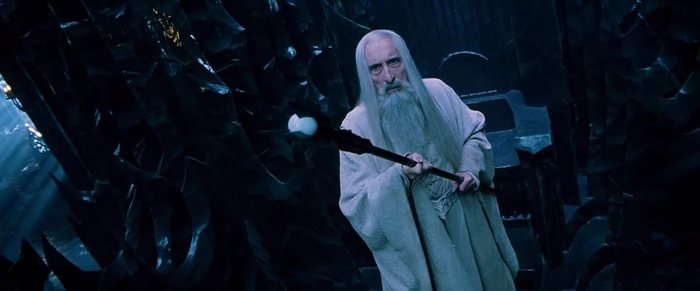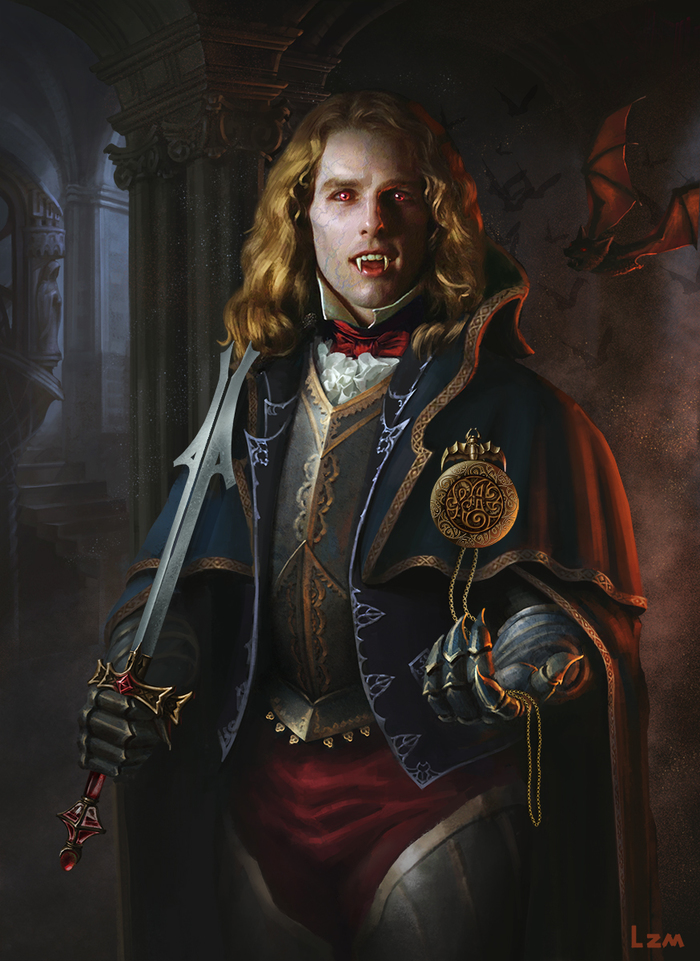Vampire shopping что это такое
Обновлено: 06.07.2024

More and more people are spending the night shopping on their laptops and smartphones. But is this always a good idea? Neil and Rob discuss their shopping habits and offer you vocabulary for free!
This week's question
According to the UK's Office for National Statistics, at the end of 2018, what percentage of all retail sales took place online? Was it…
Listen to the programme to find out the answer.
Vocabulary
insomniac
someone who can't sleep easily
to get sucked into something
not being able to stop yourself getting involved with something that you don't want to do
sleep deprived
not having enough sleep
resist the urge
to stop yourself acting on a strong feeling to do something
feel-good factor
doing something that gives someone a happy and positive feeling
regret
sad feeling you get when you've made a mistake and wished you hadn't made the mistake in the first place
Transcript
Note: This is not a word for word transcript
Neil
Hello. This is 6 Minute English and I'm Neil. And joining me today is Rob.
Rob
Hello.
Neil
Rob, how do feel about shopping?
Rob
Urgh! Mooching around a shopping mall from one shop to another, spending money - it's my idea of hell!
Neil
How about shopping online?
Rob
Ah yes, much better – sitting in front of the TV and browsing online is much easier.
Neil
Well that can be a problem – it's sometimes too easy, especially when we are tired – and we sometimes make purchases we regret. That's what we'll be talking about in this programme – an activity known as 'vampire shopping'. But before we continue, it's my job to set you a quiz question, so here goes. According to the UK's Office for National Statistics, at the end of 2018, what percentage of all retail sales took place online? Was it…
a) 9.8%,
b) 19.8%, or
c) 29.8%?
Rob
Buying things online is big business now, so I'll say c) 29.8%.
Neil
Well, you’ll have to wait a bit to find out. But let's talk more now about vampire shopping – this term refers to shopping late at night - traditionally a time when vampires appear.
Rob
Most of us are asleep at this time but sleep-deprived parents, shift-workers and gamers might not be. If you're an insomniac – someone who can't sleep easily – it's tempting to open up your laptop and start shopping.
Neil
Online shops are open 24 hours a day so it's easy to get sucked in and do some shopping!
Rob
When you get sucked into something it means you can't stop yourself getting involved with something that you didn't want to do. So what you're saying Neil is at night, when we're very tired, we don't always think straight and can make some bad decisions.
Neil
That's right. And this shopping temptation can be particularly problematic for those with mental health issues. It's something Helen Undy has been talking about on the BBC Radio 4 programme, You and Yours. She is the Chief Executive of the Money and Mental Health Institute. Let's hear what she had to say…
Helen Undy, Chief Executive, Money and Mental Health Institute
Our ability to control our impulse to spend and to resist things like advertising is reduced when we're sleep deprived. Well mental health problems can have a similar effect so the mental health problems themselves make it harder to resist the urge to spend and they also cause sleep deprivation, so you're alone possibly surfing the internet, and both the lack of sleep and the mental health problems make it harder to resist the things that you can see.
Neil
Helen said that for all us, when we're sleep deprived – that means not having enough sleep – we find it harder to resist the urge to shop. We're more sucked in to shopping by the advertising we see.
Rob
And resist the urge means stop yourself acting on a strong feeling to do something. But this is more serious for people with mental health issues. They are particularly sleep deprived and along with everything that's going on in their minds, they find it harder to resist – to stop themselves buying things.
Neil
I suppose buying things at night, if you're alone, gives you some comfort - even a feel-good factor – doing something that gives someone a happy and positive feeling. I certainly feel good when I've bought something. But Rob, have you ever bought something you regret?
Rob
Yes. Bits of tech, even flight tickets to somewhere I didn't really want to go to – because they were cheap!
Neil
Regret is a sad feeling you get when you've made a mistake and wished you hadn't made the mistake in the first place. We all have regrets Rob, particularly when buying things – but there's usually the option to return something and get a refund.
Rob
That's true but it's not always easy. Let's hear what Helen Undy had to say about that.
Helen Undy, Chief Executive, Money and Mental Health Institute
We found in our research that 75% of people, so regardless of whether you've got a mental health problem or not - three-quarters of people didn't send back the last thing they bought online that they regretted. We found that 4 in 10 people with mental health problems didn't send things back because they were so ashamed of the things that they were buying that they just wanted to pretend it never happened.
Neil
So, she says that three-quarters of people didn't send back the last thing they bought that they regretted. Maybe they were too embarrassed?
Rob
Possibly. But it's not always easy to return an item and for those with mental health issues it can be a struggle, a great effort. Helen Undy says that sometimes they were ashamed of their purchase.
Neil
Well I think we have all bought things we are ashamed of. But while online shopping continues to expand the temptation will always be there.
Rob
Well your question earlier was about the rise in online shopping, so what's the answer, Neil?
Neil
I asked according to the UK's Office for National Statistics, at the end of 2018, what percentage of all retail sales took place online? Was it…
a) 9.8%,
b) 19.8%, or
c) 29.8%?
Rob
I said c) 29.8%. I've got to be right!
Neil
Well, you're not. The rise was a bit smaller at b) 19.8%. But that's still large compared with ten years previously, when the figure was just 5.8% of all retail sales.
Rob
No doubt the figure will continue to rise. And before I nip off to do a bit of vampire shopping, let's recap some of the vocabulary we've mentioned today. Starting with insomniac.
Neil
An insomniac is someone who can't sleep easily. They suffer from insomnia.
Rob
Next we talked about to get sucked into something. This informal phrase means not being able to stop yourself getting involved with something that you don't want to do.
Neil
If you are sleep deprived, you do not having enough sleep.
Rob
And if you resist the urge, you stop yourself acting on a strong feeling to do something. For example, resisting the urge to buy something online.
Neil
But if you don't resist the urge to buy something, it might have a feel-good factor. A feel-good factor is something that makes you feel happy and positive.
Rob
But after buying something you may have regret. That's a sad feeling you get when you've made a mistake and wished you hadn't made the mistake in the first place.
Neil
Well hopefully you haven't regretted spending 6 minutes listening to us! Please join us next time and in the meantime, why not check us out on your favourite social media platforms and on our app.
Learning English

More and more people are spending the night shopping on their laptops and smartphones. But is this always a good idea? Neil and Rob discuss their shopping habits and offer you vocabulary for free!
This week's question
According to the UK's Office for National Statistics, at the end of 2018, what percentage of all retail sales took place online? Was it…
Listen to the programme to find out the answer.
Vocabulary
insomniac
someone who can't sleep easily
to get sucked into something
not being able to stop yourself getting involved with something that you don't want to do
sleep deprived
not having enough sleep
resist the urge
to stop yourself acting on a strong feeling to do something
feel-good factor
doing something that gives someone a happy and positive feeling
regret
sad feeling you get when you've made a mistake and wished you hadn't made the mistake in the first place
Transcript
Note: This is not a word for word transcript
Neil
Hello. This is 6 Minute English and I'm Neil. And joining me today is Rob.
Rob
Hello.
Neil
Rob, how do feel about shopping?
Rob
Urgh! Mooching around a shopping mall from one shop to another, spending money - it's my idea of hell!
Neil
How about shopping online?
Rob
Ah yes, much better – sitting in front of the TV and browsing online is much easier.
Neil
Well that can be a problem – it's sometimes too easy, especially when we are tired – and we sometimes make purchases we regret. That's what we'll be talking about in this programme – an activity known as 'vampire shopping'. But before we continue, it's my job to set you a quiz question, so here goes. According to the UK's Office for National Statistics, at the end of 2018, what percentage of all retail sales took place online? Was it…
a) 9.8%,
b) 19.8%, or
c) 29.8%?
Rob
Buying things online is big business now, so I'll say c) 29.8%.
Neil
Well, you’ll have to wait a bit to find out. But let's talk more now about vampire shopping – this term refers to shopping late at night - traditionally a time when vampires appear.
Rob
Most of us are asleep at this time but sleep-deprived parents, shift-workers and gamers might not be. If you're an insomniac – someone who can't sleep easily – it's tempting to open up your laptop and start shopping.
Neil
Online shops are open 24 hours a day so it's easy to get sucked in and do some shopping!
Rob
When you get sucked into something it means you can't stop yourself getting involved with something that you didn't want to do. So what you're saying Neil is at night, when we're very tired, we don't always think straight and can make some bad decisions.
Neil
That's right. And this shopping temptation can be particularly problematic for those with mental health issues. It's something Helen Undy has been talking about on the BBC Radio 4 programme, You and Yours. She is the Chief Executive of the Money and Mental Health Institute. Let's hear what she had to say…
Helen Undy, Chief Executive, Money and Mental Health Institute
Our ability to control our impulse to spend and to resist things like advertising is reduced when we're sleep deprived. Well mental health problems can have a similar effect so the mental health problems themselves make it harder to resist the urge to spend and they also cause sleep deprivation, so you're alone possibly surfing the internet, and both the lack of sleep and the mental health problems make it harder to resist the things that you can see.
Neil
Helen said that for all us, when we're sleep deprived – that means not having enough sleep – we find it harder to resist the urge to shop. We're more sucked in to shopping by the advertising we see.
Rob
And resist the urge means stop yourself acting on a strong feeling to do something. But this is more serious for people with mental health issues. They are particularly sleep deprived and along with everything that's going on in their minds, they find it harder to resist – to stop themselves buying things.
Neil
I suppose buying things at night, if you're alone, gives you some comfort - even a feel-good factor – doing something that gives someone a happy and positive feeling. I certainly feel good when I've bought something. But Rob, have you ever bought something you regret?
Rob
Yes. Bits of tech, even flight tickets to somewhere I didn't really want to go to – because they were cheap!
Neil
Regret is a sad feeling you get when you've made a mistake and wished you hadn't made the mistake in the first place. We all have regrets Rob, particularly when buying things – but there's usually the option to return something and get a refund.
Rob
That's true but it's not always easy. Let's hear what Helen Undy had to say about that.
Helen Undy, Chief Executive, Money and Mental Health Institute
We found in our research that 75% of people, so regardless of whether you've got a mental health problem or not - three-quarters of people didn't send back the last thing they bought online that they regretted. We found that 4 in 10 people with mental health problems didn't send things back because they were so ashamed of the things that they were buying that they just wanted to pretend it never happened.
Neil
So, she says that three-quarters of people didn't send back the last thing they bought that they regretted. Maybe they were too embarrassed?
Rob
Possibly. But it's not always easy to return an item and for those with mental health issues it can be a struggle, a great effort. Helen Undy says that sometimes they were ashamed of their purchase.
Neil
Well I think we have all bought things we are ashamed of. But while online shopping continues to expand the temptation will always be there.
Rob
Well your question earlier was about the rise in online shopping, so what's the answer, Neil?
Neil
I asked according to the UK's Office for National Statistics, at the end of 2018, what percentage of all retail sales took place online? Was it…
a) 9.8%,
b) 19.8%, or
c) 29.8%?
Rob
I said c) 29.8%. I've got to be right!
Neil
Well, you're not. The rise was a bit smaller at b) 19.8%. But that's still large compared with ten years previously, when the figure was just 5.8% of all retail sales.
Rob
No doubt the figure will continue to rise. And before I nip off to do a bit of vampire shopping, let's recap some of the vocabulary we've mentioned today. Starting with insomniac.
Neil
An insomniac is someone who can't sleep easily. They suffer from insomnia.
Rob
Next we talked about to get sucked into something. This informal phrase means not being able to stop yourself getting involved with something that you don't want to do.
Neil
If you are sleep deprived, you do not having enough sleep.
Rob
And if you resist the urge, you stop yourself acting on a strong feeling to do something. For example, resisting the urge to buy something online.
Neil
But if you don't resist the urge to buy something, it might have a feel-good factor. A feel-good factor is something that makes you feel happy and positive.
Rob
But after buying something you may have regret. That's a sad feeling you get when you've made a mistake and wished you hadn't made the mistake in the first place.
Neil
Well hopefully you haven't regretted spending 6 minutes listening to us! Please join us next time and in the meantime, why not check us out on your favourite social media platforms and on our app.
Related Quests
Gone Fishin' The Protagonist will meet Yukie here to begin this quest. Eye Gouge Hell Lin's body is kept in the back of the shop.
Ramen Shop

The shop is split into two halves with a locked door (requirement Lockpicking 10) to bypass. There are separate entrances for the front and back halves of the shop.
Вампиры. Происхождение образа и предпосылки верований в них.

Кто же не слышал про вампиров? Сейчас это довольно популярная тема для десятков фильмов и сотен книг. Но откуда взялся этот странный образ кровососущей нежити, боящейся света, чеснока, серебра и осиновых колов? Или может они были на самом деле?
Так же добавили "красок" цыгане. Традиционные верования цыган включают идею о том, что душа умершего попадает в мир, похожий на наш, за исключением того, что там нет смерти. Душа остаётся неподалёку от тела и иногда хочет вернуться. Цыганские легенды о живых мертвецах обогатили легенды о вампирах в Венгрии, Румынии и славянских землях.
Любопытный факт: в казахской мифологии есть ведьма жалмауыз кемпир (в киргизской желмогуз кемпир, обратите внимание, насколько похоже название!), среди привычек которой присутствует и высасывание крови из пятки или колена жертвы. Вот кого надо было против Ахиллеса троянцам вызывать, а не всяких там амазонок!
Этимология же слова довольна интересна, ведь получается, что "вампир" и "упырь" это одно и то же! Хотя сейчас принято считать, что это разные виды нежити.

В разных культурах были разные характерные признаки вампиров, но всё же есть кое что общее:
Вампир — относительно бессмертное существо, убить его можно, но он не стареет. В различных произведениях европейского фольклора упоминаются вампиры, возраст которых составляет более 1000 лет. Так же это сверхъестественное существо и обладает физической силой, которая во много раз превосходит силу человека, не говоря уже о сверхъестественных способностях.
Внешность европейского вампира состоит в большей степени из особенностей, по которым его можно отличить от обычного трупа, стоит только вскрыть могилу подозреваемого вампира. Он имеет здоровый вид и румяную кожу (как всё же кинематограф изменил образ на мертвенно-бледный цвет), он часто бывает пухлым (отчего казалось что выглядел здоровее чем при жизни), у него отросшие волосы и ногти и ко всему прочему он совершенно не разложившийся.
Наиболее обычные способы уничтожить вампира — это вонзить осиновый кол в его сердце, обезглавить и полностью испепелить тело. Чтобы не дать тому, кто мог стать вампиром, восстать из могилы, тело хоронили лицом вниз, перерезали сухожилия в коленях или клали маковые семена на могильную землю предполагаемого вампира, чтобы заставить его считать их всю ночь. Китайские рассказы о вампирах также утверждают, что если вампир наткнётся на своём пути на мешок риса, он/она пересчитает все зёрна. Подобные мифы записаны и на индийском полуострове. Южноамериканские рассказы о ведьмах и других видах злых или вредных духов и существ также говорят о подобной склонности их героев. Так же чтоб вампир не выбрался из гроба, нужно поместить какой-либо предмет под подбородком, чтобы не дать телу съесть похоронный саван, пригвоздить одежду к стенкам гроба по этой же причине, положить в гроб опилки (вампир пробуждается вечером и должен посчитать каждую крупинку этих опилок, что занимает целый вечер, так что он умрёт, когда наступит рассвет), или проколоть тело шипами или кольями. Известны случаи, когда людей, подозреваемых в вампиризме, хоронили вниз лицом, а в рот заталкивали большой кирпич или камень.
Предметами, защищающими от вампиров (так же как и от других сверхъестественных существ) были чеснок (в большей степени свойственно европейским легендам), солнечный свет, стебель дикой розы, боярышник и все священные вещи (крест, святая вода, распятье, чётки, звезда Давида (в зависимости от религии вампира) и т. д.), а также алоэ, подвешенный за дверью или возле неё, согласно южноамериканским суевериям. В восточных легендах от вампиров часто защищали священные вещи типа печати Синто.
Иногда считается, что вампиры могут менять форму, не ограничиваясь распространённым стереотипом летучей мыши из фильмов и мультфильмов.
Некоторые суеверия утверждают, что вампир не может войти в дом без приглашения. Обычно приглашение нужно получить лишь однажды, после чего вампир может приходить и уходить когда захочет.
В христианской традиции считается, что вампиры не могут входить в церковь или другое священное место, так как они слуги дьявола.
В XVIII веке в Восточной Европе началась серьёзная паника по поводу вампиров. В охоту на вампиров втягивали даже государственных служащих.
Всё началось со вспышки жалоб на нападения вампиров в Восточной Пруссии в 1721 году и в Габсбургской монархии с 1725 по 1734. Два известных (и впервые полностью задокументированных властями) случая затрагивали Петара Благоевича (Петера Плогоёвица) и Арнаута Павле из Сербии. Согласно истории, Благоевич умер в 62 года, но возвращался пару раз после своей смерти, прося еды у сына. Сын отказал и был найден мёртвым на следующий день. Вскоре Благоевич вернулся и напал на некоторых соседей, которые умерли от потери крови.
В другом известном случае Арнольд Паоле, бывший солдат, ставший фермером, на которого несколько лет назад якобы напал вампир, умер во время сенокоса. После его смерти люди стали умирать и все считали, что это Паоле охотится на соседей.
Эти два случая вызвали настоящую истерию. Учёные полагали, что это было бешенство или преждевременные похороны (когда люди впадали в кому/летаргический сон и просыпались в гробу. Если закопали не глубоко, они выбирались, направлялись домой и. Ну, можете дальше себе представить. Кстати, вы знали что в 1344 году знаменитый итальянский поэт Франческо Петрарка впал в летаргию, был сочтён мёртвым и пролежал в таком качестве 20 часов. В соответствии с итальянскими законами того времени, умершего полагалось похоронить в течение суток после его смерти, но Франческо пришёл в себя, шокировав этим присутствовавших. После этого случая Петрарка прожил почти 30 лет). Но обычные люди видели в эпидемиях и откопанных мертвецах вампиров.
Австрийская императрица послала своего личного врача исследовать это дело. Он осмотрел тела, вник в дело и полностью опроверг существования вампиров и императрица запретила вскрывать могилы и осквернять тела. "Вампирская эпидемия" затухла. Но именно благодаря этим событиям мы обязаны тому, что знаем о вампирах. Ибо именно этот трактат Кальме дал толчок литературному признанию вампиров как образа. Именно благодаря ему образ кровососущей нежити пошёл дальше "гулять" по Европе, обрастая деталями, вершиной которого стал "Дракула" (1897) сэра Абрахама „Брэма“ Стокера.
Впрочем, тема вампиров в кинематографе копируется именно с "Дракулы". К примеру был такой фильм "Носферату" с Кристофером Ли (да, это тот самый Саруман и граф Дуку. У него до-о-о-олгая фильмография)


в котором всё было так сильно похоже на плагиат, что жена Стокера подала в суд и выиграла дело. Большая часть копий фильма была уничтожена.

Кстати, этот знаменитый жуткий кадр именно из этого фильма (только там его звали граф Орлок, а не Дракула).
Были так же ещё много публикаций и экранизаций, где вампиры порой кардинально отличались от своего изначального образа (научно-фантастический роман "Грёзы Февра" известного писателя Джорджа Мартина, не знали да, что он и о вампирах писал?=)).
Ну и, конечно же "Сумерки". Куда без них?=)

В итоге сложился более или менее стойкий стереотип вампира, в целом напоминающий фольклорный.

Но были и различия. Вот основные:
Разумеется, каждый автор привнёс что то своё в свои произведения. Характеристики и особенности везде разные (особенно мне нравится разнообразие и уникальность вампиров в "Ведьмаке", в частности высших, как Регис), но в целом особенности и различия фольклорных и современных представлений о вампирах именно те, что указаны выше.
А теперь о физиологической стороне.
Вампиризм из фольклора обычно связывался с серией смертей из-за неопределённых или загадочных заболеваний, обычно в одной и той же семье или в одном маленьком сообществе. Эпидемический характер очевиден в классических случаях с Петером Плогожовицем и Арнольдом Паоле, а также в случае с Мерси Браун (одном из прототипов персонажей Сткера) и в вампирских суевериях Новой Англии в целом, когда специфическое заболевание, туберкулёз, ассоциировалось со вспышками вампиризма.
Когда гроб подозреваемого в вампиризме вскрывали, иногда обнаруживалось, что труп выглядел необычным образом. Это часто воспринималось как доказательство вампиризма. Однако трупы разлагаются с разной скоростью, в зависимости от температуры и состава почвы, и некоторые признаки разложения не являются широко известными. Это приводило охотников за вампирами к ложному выводу, что мёртвое тело не разлагалось вовсе, или к интерпретации признаков разложения как признаков продолжающейся жизни.
Бешенство — это ещё одно заболевание, связанное с вампирским фольклором. Страдающие этой болезнью избегают солнечного света и не смотрят в зеркала, а возле рта у них вспенившаяся слюна. Иногда эта слюна может быть красной и напоминать кровь. Однако, нет свидетельств, указывающих на то, что бешенство могло вдохновить на легенды о вампирах. Впрочем, я думаю, что волки вполне могли гармонично войти в образ.
Есть ещё такая болезнь как порфирия (слабонервным не гуглить. Я серьёзно, сам третью ночь не сплю О_О), при которой развивается болезненная светочувствительность (под воздействием солнечных лучей на коже могут появляться эрозии, пузыри, глубокие трещины, сопровождающееся ещё и распадом гемоглобина в крови), отвращение к чесноку (так как сульфоновая кислота, выделяемая чесноком, усиливает повреждения, вызываемые заболеванием). В запущенных случаях кожа вокруг губ и дёсен высыхает и становится жесткой, что в результате приводит к тому, что резцы обнажаются до десен, создавая эффект оскала. Ещё один симптом — отложение порфирина на зубах, которые могут становиться красными или красновато-коричневыми. Кроме того, у пациентов сильно бледнеет кожа, в дневное время они ощущают упадок сил и вялость, которая сменяется большей подвижностью в ночное время. Таким образом, если учесть что лечить болезнь научились только во второй половине XX века (путём пересадки костного мозга), человек становился обезображен и реально напоминал упыря. Только вот на кровь их не тянуло, а так на вид типичный вампир. Ах да, и прибавьте сюда острый психический психоз, дополняющий и без того малоприятную картину. Полагают, что болезнь является результатом близкородственных браков (или же воздействия ядов) и их дальнейших потомков. Разумеется, исходя из вышесказанного, есть очень жизнеспособная и правдоподобная теория, что именно эта болезнь и стала прообразом внешности Дракулы и ему подобных, которая приплюсовалась к уже существующим поверьям.
А при чём тут летучие мыши?
В течение XVI века испанские конкистадоры впервые повстречали летучих мышей-вампиров и узнали сходство между предпочтением в еде у летучих мышей и легендарных вампиров. Мыши были названы в честь фольклорного вампира, а не наоборот. Спустя многие годы летучие мыши были вовлечены в художественные рассказы и стали одним из наиболее важных вампирских ассоциаций в популярной культуре. Ещё один "плюсик" к образу.

Вот так, кусочек за кусочком, как пазл собрался образ всеми известного вампира. От древнейших духов и сверхъестественных существ (тяга к крови); славянской нежити (название); животных (летучие мыши и волки); болезни (порфирия и пр.); эксгумация (гробы и прочая загробная атрибутика) до фантазии писателей и сценаристов.
На этом у меня всё=)
Подписывайтесь, с нами Вы узнаете много разных интересных и познавательных фактов о мировой истории.
Читайте также:

